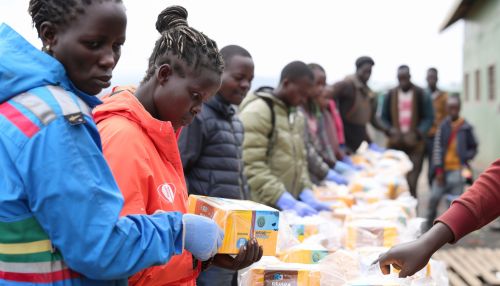World Food Programme
Overview
The World Food Programme (WFP) is a humanitarian organization that provides food assistance and nutrition to communities affected by emergencies, including natural disasters and conflicts. It is a part of the United Nations system and is voluntarily funded.


History
The World Food Programme was established in 1961, following the 1960 Food and Agriculture Organization (FAO) Conference. The initial idea was proposed by U.S. President Dwight D. Eisenhower to create a multilateral food aid programme. The WFP began its operations on a three-year experimental basis, but by 1965, the United Nations General Assembly made WFP a fully-fledged UN programme.
Mission and Goals
The mission of the World Food Programme is to end global hunger and malnutrition, and to improve food security in the world's most vulnerable communities. The organization aims to achieve this by providing food assistance during emergencies and working with communities to improve their nutritional status and resilience in the face of challenges such as climate change, conflict, and economic instability.
Operations
The World Food Programme operates in more than 80 countries around the world. Its operations include emergency food assistance, school feeding programmes, nutrition programmes, and resilience-building activities. The WFP also provides logistics support to other humanitarian organizations, including the transport and storage of relief items.
Funding
The World Food Programme is primarily funded by voluntary contributions from governments, corporations, and private donors. The organization also receives in-kind donations, such as food and logistics services. The WFP's funding needs are determined by the scale and complexity of the emergencies it responds to, as well as its ongoing programmes.
Impact
The World Food Programme has had a significant impact on global hunger and malnutrition. In 2020, the organization provided food assistance to nearly 100 million people in 88 countries. The WFP's school feeding programmes have also played a crucial role in improving the nutrition and education outcomes of millions of children around the world.
Challenges and Criticisms
Despite its successes, the World Food Programme faces several challenges. These include funding shortfalls, logistical difficulties in reaching some of the world's most remote and conflict-affected areas, and the increasing severity and frequency of climate-related disasters. The organization has also faced criticism for its reliance on donor funding and for some of its partnerships with corporations.
